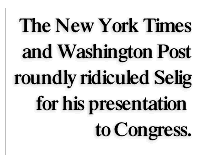Why Did Chief Jones Protect a Man With a Violent Record?
Earlier this week, Milwaukee Police Chief Jones used his power to protect Wendell Jones, the husband of County Supervisor Elizabeth Coggs-Jones. The chief, it turns out, was using his discretion to protect a man with a history of violence.
 Police had cited Wendell Jones for disorderly conduct after he had angrily and loudly confronted them for ticketing cars outside a tavern where Jones and his wife and friends were celebrating her birthday. Chief Jones ordered that Wendell Jones’ disorderly conduct citation be dropped and the parking tickets be thrown out.
Police had cited Wendell Jones for disorderly conduct after he had angrily and loudly confronted them for ticketing cars outside a tavern where Jones and his wife and friends were celebrating her birthday. Chief Jones ordered that Wendell Jones’ disorderly conduct citation be dropped and the parking tickets be thrown out.
Wendell Jones’ angry reaction to the police has a familiar ring to it. On October 12, 2000, he was arrested for domestic violence against his wife. Coggs-Jones told police her husband had been drinking on that night and began arguing with her. “He pushed me,” Coggs-Jones told police. “We began to struggle. I have bronchitis and he hit me in my chest. There was pushing and struggling.”
This was not the first time Jones had attacked his wife. “There has been previous violence and the police have been called,” Coggs-Jones said. “The other incidents have been violent also… In May [2000] an incident happen(ed) with the kids present. I left the house that time with the kids.”
While the court issued a restraining order against Jones, no further action was taken against him. “The matter has not been diligently prosecuted,” court commissioner Nancy R. Sturm found, presumably because Coggs-Jones chose not to press charges.
Wisconsin Electric/Wisconsin Gas might also have mixed feelings about letting Wendell Jones off the hook. In the last eight years, the former Wisconsin Gas Co. went to court five times to force him to pay his bills, in 1993, 1994, 1995, 1997 and 1999. In 1998, Children’s Hospital filed a similar, small claims action against him for money owed.
On the other hand, one can imagine how annoyed police officers might be, if they encountered the sort of alcohol-fueled anger from Wendell Jones that his wife has suffered at times. This may be one case where a police chief’s mercy is going to encourage more such behavior.
Everybody Dumps on Bud
 You have to feel a little sorry for Bud Selig, who is getting dumped on by the national press, national politicians, and almost everybody in the country except the Milwaukee Journal Sentinel. As Selig presented his statistics on how major league baseball teams were losing a half billion dollars, politicians were more than a little dubious. Rep. John Conyers, Jr. (D-Michigan) declared, “The information they turned over to us is meaningless… In essence what they have told us is ‘we lose money, but we can’t trust you with the details.'”
You have to feel a little sorry for Bud Selig, who is getting dumped on by the national press, national politicians, and almost everybody in the country except the Milwaukee Journal Sentinel. As Selig presented his statistics on how major league baseball teams were losing a half billion dollars, politicians were more than a little dubious. Rep. John Conyers, Jr. (D-Michigan) declared, “The information they turned over to us is meaningless… In essence what they have told us is ‘we lose money, but we can’t trust you with the details.'”
Even the home team, Republican Rep. F. James Sensenbrenner of Wisconsin, scoffed at the figures, saying, “The numbers don’t add up… Maybe I was asleep in Economics 101 class.”
Congress also learned the baseball players association was threatened with a suit by the owners if the union shared confidential information contradicting Selig’s figures. This led Rep. Maxine Waters (D-California) to demand Selig share this information. “You have all the numbers,” Selig said, prompting Waters’ response, “Let me remind you, you are under oath.”
Selig’s frequent citation of the Blue Ribbon Panel report of years ago bemoaning baseball’s economic condition also came in for ridicule. The report was headed up by former Senator George Mitchell, who is now trying to buy a piece of the Boston Red Sox. A congressman noted Mitchell “studied your sport, said you were losing money and now he wants to buy in. That leaves me a little shaky about your judgment.”
Little of this could be found in the Journal Sentinel, which also passed on reporting the abuse Selig was getting from other newspapers. “Selig was doing his best Uriah Heep imitation, wringing his hands and bemoaning the imbalances of baseball,” the New York Times’ George Vecsey wrote. The owners’ contraction plan, Vecsey added, could “kill The Minnesota Twins, thereby freeing up a gigantic open space in the north county above Milwaukee, where, it just so happens, the Selig family owns a baseball team.”
Vecsey suggested the $119 million contract Jason Giambi was likely to sign with the New York Yankees was delayed by the team to avoid becoming “a symbol for all that’s wrong with baseball.” Certainly Selig, who stays in constant touch with owners, would have counseled Yankees owner George Steinbrenner that this would be very bad PR at a time when the owners are trying to convince the world of their losses. “Who takes these figures seriously,” Vecsey asked.
Even more stinging, and more factual, was the Washington Post’s Tom Boswell, whose column was a clinic on the holes in Selig’s data. Boswell noted $174 million of the supposed $519 million in losses was paper depreciation of players, and another $112 million was interest payments on debt which owners chose to carry rather than pay cash, thus giving them a higher return when they sell their teams. The entire column is at: http://www.washingtonpost.com/wp-dyn/articles/A5633-2001Dec6.html
Perhaps symbolizing the problem with Selig’s statistics was the idea that the Los Angeles Dodgers were the biggest victims in baseball, losing $69 million last season. This is the same team the Fox Network purchased as one of the linchpins of its mega-bucks operation. Conglomerates like this can find a thousand ways to assign “losses” to one part of its operation that may be completely misleading. Baseball’s history is replete with such claims.
Short Takes
It’s official. State Sen. Robert Welch (R-Redgranite) will not be running for governor against Scott McCallum. Or maybe it isn’t. Just after announcing his decision not to run, Welch said he might still challenge Gov. Scott McCallum next year.
Timing does seem to be a problem for Welch. His non-announcement that he won’t run got him page three of the state-local section in the Journal Sentinel. His next attempt to get such publicity may be simply ignored.
Finley Fest: Ambitious Waukesha County Executive Dan Finley, who is said to be very interested in running for governor some day, suggests you donate $3,000 to his campaign fund. That’s the top amount suggested in the invitation for his December 11th fundraiser at the Italian Community Center, which is a long way from Waukesha. Milwaukee names who are co-hosts include Gerald Boyle, Barbara Candy, Russ Darrow, Jr., William Ryan Drew, Gary Grunau, Tom Hefty, James Klauser, Steve Marcus, Mike Mervis, Robert Milbourne, Todd Robert Murphy, Jack Pelisek, Martin Schreiber, Tim Sheehy and Evan Zeppos. My apologies if I left your name off the list.
This article was originally published by Milwaukee World.
Murphy's Law
-
The Last Paycheck of Don Smiley
 Dec 17th, 2025 by Bruce Murphy
Dec 17th, 2025 by Bruce Murphy
-
Top Health Care Exec Paid $25.7 Million
 Dec 16th, 2025 by Bruce Murphy
Dec 16th, 2025 by Bruce Murphy
-
Milwaukee Mayor’s Power in Decline?
 Dec 10th, 2025 by Bruce Murphy
Dec 10th, 2025 by Bruce Murphy





















